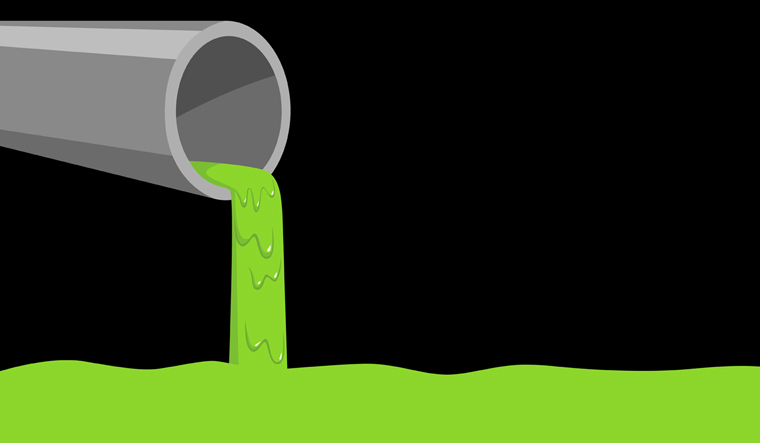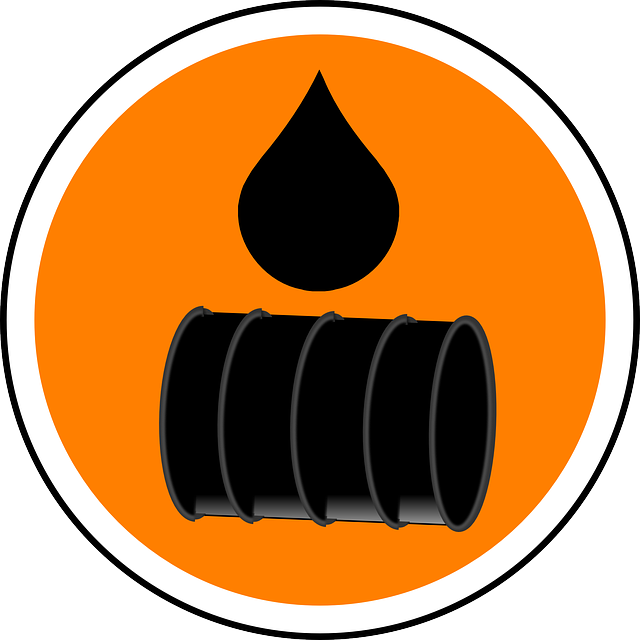Industrial Wastewater Treatment: Advanced Approaches for Effective Management
Industrial Wastewater Treatment: Advanced Approaches for Effective Management
Blog Article
Recognizing the Comprehensive Refine of Fluid Garbage Disposal: Best Practices and Environmental Impact Considerations
The management of liquid waste disposal is a complex issue that needs a comprehensive understanding of numerous best practices and their connected ecological effects. From the types of fluid waste created to the techniques employed for collection, therapy, and last disposal, each step plays a critical role in safeguarding communities and public wellness.
Kinds Of Liquid Waste
Recognizing the various sorts of liquid waste is important for efficient administration and disposal methods. Fluid waste can be extensively classified right into a number of kinds, each requiring special handling and therapy methods.
Industrial liquid waste typically includes hazardous materials, including heavy metals, solvents, and chemicals, generated during manufacturing processes. These wastes necessitate strict regulatory conformity to protect human wellness and the atmosphere. Residential liquid waste mainly refers to wastewater produced from houses, including sewage and greywater, which, although less hazardous, can still present substantial threats if poorly managed.
Agricultural liquid waste, including runoff from farms, frequently includes fertilizers and pesticides that can bring about ecological degradation if not treated effectively. Clinical liquid waste, produced from health care facilities, consists of contaminated fluids such as physical liquids and chemicals, calling for specialized disposal techniques to stop infection and ecological contamination.
Finally, oil and grease waste, generally produced by restaurants and auto sectors, can create extreme obstructions in drain systems if not managed effectively. Recognizing these classifications assists in targeted strategies for therapy, conformity with guidelines, and effective disposal methods, inevitably advertising environmental sustainability and public wellness security.

Collection Methods
Efficient collection techniques are essential for the correct management of fluid waste, guaranteeing that it is gathered securely and effectively prior to treatment or disposal. Numerous methods are employed depending upon the kind of fluid waste produced, the quantity, and the certain qualities of the waste.
One common technique is the use of dedicated collection containers or sumps, which are developed to capture fluid waste at the source. These systems commonly include pumps that assist in the transfer of waste to larger storage containers or therapy facilities. In addition, mobile collection systems outfitted with vacuum modern technology are used in situations where waste is produced periodically or in hard-to-reach locations.
For industrial setups, closed-loop systems can effectively decrease leakages and spills, permitting for the healing and reuse of fluid waste. It is also important to train personnel on appropriate collection procedures to minimize risks connected with harmful compounds.
In addition, implementing regular maintenance routines for collection devices makes certain optimal performance and security. The combination of innovative tracking systems can boost collection efficiency by offering real-time information on waste degrees and possible risks. Generally, effective collection techniques are foundational to sustainable liquid waste management practices.
Treatment Procedures
Therapy procedures play an essential duty in the monitoring of liquid waste, transforming potentially dangerous materials right into multiple-use sources or secure effluents - liquid waste disposal. These procedures can be extensively categorized right into physical, chemical, and organic approaches, each customized to resolve details impurities existing in the waste stream
Physical therapy techniques, such as sedimentation and filtering, job by getting rid of suspended solids and particle issue. These methods are frequently the initial step in the therapy chain, properly decreasing the load on succeeding processes. Chemical treatments involve using reagents to reduce the effects of damaging substances, precipitate heavy steels, or oxidize natural contaminants, thus enhancing the security of the effluent.
Organic treatment procedures, consisting of triggered sludge systems and anaerobic food digestion, exploit on the natural capabilities of microorganisms to degrade organic issue. These approaches are especially efficient for wastewater containing naturally degradable pollutants. Advanced treatment modern technologies, such as membrane filtering and progressed oxidation processes, are progressively used to achieve higher levels of filtration.
Integrating industrial wastewater treatment a mix of these therapy methods not only makes certain conformity with governing criteria but additionally advertises ecological sustainability by recovering important sources from fluid waste.
Disposal Options
Just how can organizations make certain the accountable and risk-free disposal of fluid waste? Reliable disposal choices are vital for guarding public health and the environment. The primary approaches consist of land treatment, disposal, and incineration complied with by discharge right into metropolitan wastewater systems.
Land disposal entails the mindful control of fluid waste in marked land fills, making certain that it does not seep right into bordering dirt or water. Incineration, on the various other hand, topics liquid waste to high temperature levels, transforming it right into ash and gases, which call for proper filtration to decrease exhausts. This approach is ideal for hazardous wastes that can not be dealt with via standard methods.
In instances where fluid waste can be dealt with, organizations may choose chemical or organic therapy procedures to reduce the effects of damaging elements before releasing the dealt with effluent right into community systems. This route normally lines up with regulatory requirements, guaranteeing that the effluent meets safety and security requirements.
Eventually, organizations have to perform comprehensive assessments of each disposal option to establish its practicality, considering variables such as waste make-up, regulative conformity, and prospective risks to health and wellness and the setting. By selecting proper disposal techniques, organizations can add to a liable waste monitoring method.
Ecological Effect
The environmental impact of fluid waste disposal is a crucial consideration for companies looking for to minimize their environmental impact. Additionally, the discharge of neglected or inadequately treated waste right into surface area waters can result in eutrophication, leading to oxygen deficiency and the subsequent death of fish and other organisms.

To mitigate these impacts, organizations need to take on ideal techniques such official source as implementing rigorous waste treatment processes, advertising recycling and reuse, and adhering to regulatory requirements. By taking an aggressive method to fluid waste monitoring, entities can significantly minimize their ecological footprint while supporting sustainable advancement goals. Eventually, a thorough understanding of the ecological impacts connected with liquid garbage disposal is vital for notified decision-making and responsible stewardship of natural resources.
Conclusion
Efficient management of fluid waste is essential for safeguarding ecological integrity and public wellness. Eventually, a thorough understanding of liquid waste disposal not only reduces ecological influences yet also promotes a commitment to liable resource administration and environmental stewardship.
The management of liquid waste disposal is a diverse concern that calls for a complete understanding of various best methods and their linked environmental effects. From the kinds of liquid waste produced to the approaches used for collection, treatment, and last disposal, each step plays a critical function in guarding communities and public wellness.The environmental effect of fluid waste disposal is a critical consideration for companies seeking to reduce their environmental impact. Inevitably, an extensive understanding of the ecological influences linked with liquid waste disposal is vital for educated decision-making and liable stewardship of all-natural resources.
Ultimately, a detailed understanding of fluid waste disposal not just minimizes ecological impacts but likewise promotes a commitment to accountable source monitoring and ecological stewardship.
Report this page